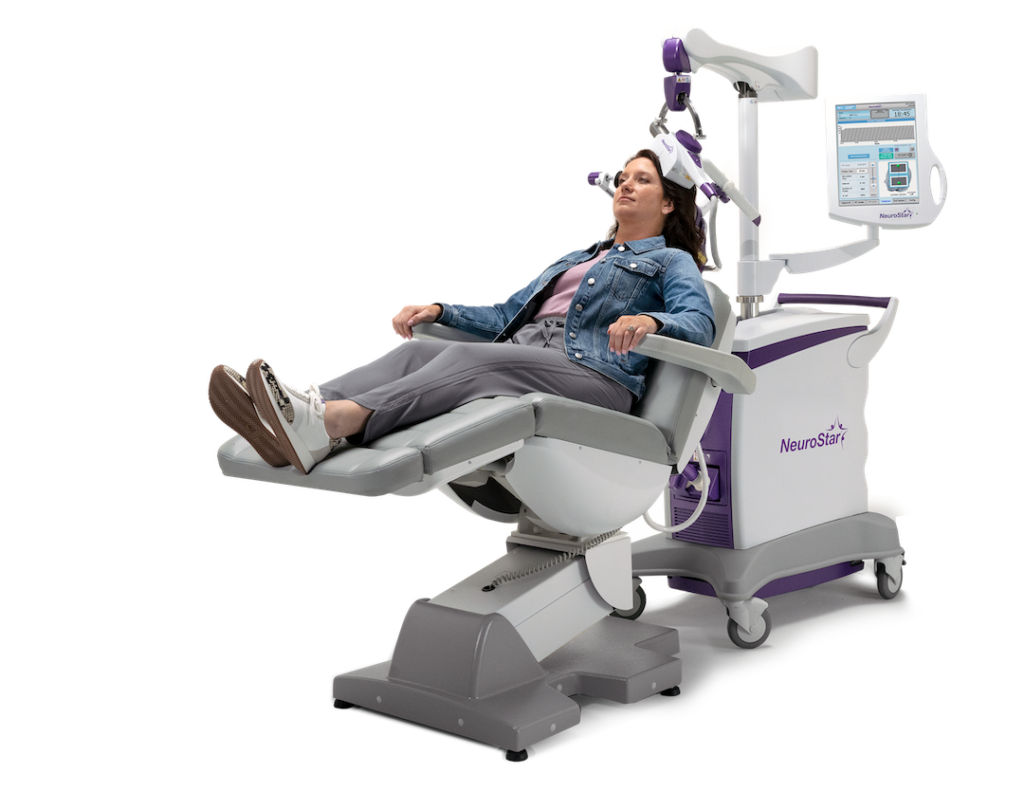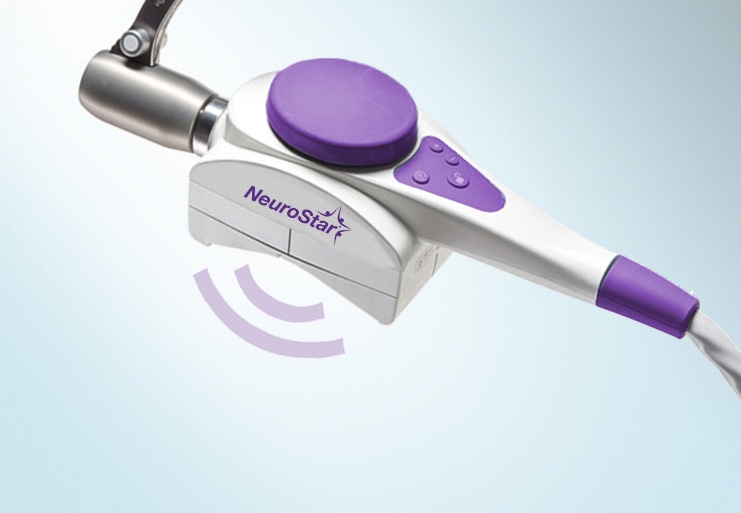Mon - Thu 8 AM - 4:30 PM, Fri 8 AM - 2:30 PM | 513-204-1910 | info@leesidewellness.com
Physical therapy for the brain
A proven method to deliver long-term relief from depression, right here in Cincinnati. TMS is a groundbreaking, non-invasive treatment for depression. Like physical therapy for the brain, there are no pills, no fuss, just results.
Contact us today to find out if TMS therapy is right for you.
TMS THERAPY
Lee Side Wellness is one of the only providers of TMS therapy in Southwest Ohio. Our experts have undergone extensive training and education in the field, and bring years of experience to each patient’s TMS therapy session. We selected NeuroStar® as our trusted device partner. NeuroStar® is the number one physician-recommended TMS therapy and is accepted by most insurance companies.
Transcranial magnetic stimulation
Transcranial magnetic stimulation (TMS) is a type of brain stimulation therapy. It’s a clinically proven, non-invasive, drug-free therapy that can help people who experience depression. It uses focused magnetic pulses (similar to an MRI) to revitalize inactive synapses in the brain.
There are specific areas in your brain that control mood. When synapses in those mood-regulating areas are underactive, connections are broken and depression can result. When these connections are “woken up,” it can have a lasting effect on neurotransmitter levels and can lead to long-term remission from depression for many people.
TMS THERAPY APPROVED BY THE FDA
The human body contains electromagnetic fields. For example, your heart’s electrical system controls your heartbeat. TMS therapy uses magnetic fields to stimulate nerve cells in the brain to improve symptoms of depression. TMS therapy is an alternative to medication for people who have found antidepressants unsuccessful. TMS therapy is approved by the FDA specifically for people who don’t respond to antidepressant medication.



TMS THERAPY APPROVED BY THE FDA
During a TMS therapy session, you’ll be seated in a comfortable chair specifically designed by NeuroStar® for TMS therapy. The treatment is noninvasive, and no medication or sedation is used. During each session, a cushioned coil is precisely placed against your head while magnetic pulses deliver the therapy to the correct location that regulates mood in your brain. Our team is right by your side, providing any support you may need during this outpatient treatment.
Due to the unique nature of the treatment process, risk of side effects are minimal to none. The most common side effect may be a mild discomfort at, or near, the treatment site and in the majority of cases goes away within the first week or so of treatment.
TMS therapy is covered by most insurance. If your insurance does not cover TMS, don’t let that discourage you. We offer many other options to help alleviate the financial hurdles.
TMS therapy sessions last 20 – 40 minutes each.
Yes. There are no limits to your activity following treatment. No sedation or medication is used during therapy.
First Step
The first step to TMS treatment is a consultation. Please contact us to discuss yours.
Please contact us to discuss yours.

Use our TMS assessment tool to find out if TMS therapy may be right for you.